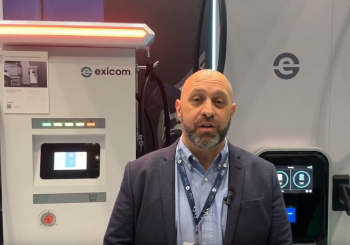SkyQuest's market research found that wireless vehicle charging is an emerging technology poised to impact the electric car industry significantly. By 2035, over 45% of all new car sales will be EVs. This rapid growth in the electric car market is due, in part, to the development of advanced charging technologies like wireless charging.
The report states: "In addition, the development of fast-charging infrastructure for electric vehicles is also playing a crucial role in the growth of this market. Factors such as the rising popularity of electric vehicles, the increasing cost of oil, and global concerns about climate change are driving the development of this market. Additionally, fast-charging infrastructure growth contributes to global market expansion."
SkyQuest predicts that the wireless EV charging systems market is anticipated to surpass US$206m by 2028 at a compound annual growth rate (CAGR) of 41% from 2022-2028.
Wireless EV charging eliminates the need for physical connections between vehicles and charging stations. In this system, vehicles are equipped with a power receiving coil under their surface, while the power transmitting coil is positioned on the charging station. When the vehicle is parked on or near the charging station, the transmitting coil sends power to the receiving coil, charging the battery wirelessly.
The static wireless EV charging systems segment is expected to experience significant growth from 2023 to 2028 to dominate the wireless electric vehicle charging systems market. Such rapid growth can be attributed to several factors, including the increasing number of pilot projects undertaken by leading automotive manufacturers to integrate static wireless EV chargers into their electric vehicles.
In addition, governments in some countries, such as the Netherlands, are also incentivising the adoption of these systems through tax deductions. For instance, individuals in the Netherlands can receive up to 36% off the cost of purchasing and installing charging stations. In Greece, the incentives are even greater, with a tax return of up to 75% available for these costs. These incentives are contributing to the growth of the static wireless EV charging systems segment.
SkyQuest says the substantial growth of the wireless EV charging systems market in Europe is fuelled by several factors, including the rising popularity of EVs, the initiation of various pilot projects for wireless EV charging technology throughout Europe, and government support for testing the viability of wireless charging for EVs. With over 1.38 million registered plug-in vehicles, Germany is one of the leading European electric car market nations.





Follow Us On Social Media